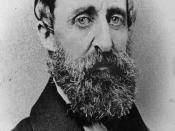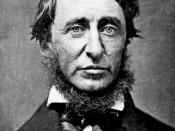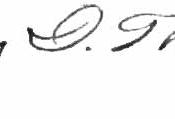Poverty is a state of having little or no money and few or no material possessions. In Down and Out in Paris and London and ÃÂConclusionÃÂ of Walden written by George Orwell and Henry David Thoreau, respectively, both works offer perspectives on life of poverty. In addition, both authors have agreed that there are some advantages about being poor.
First of all, both authors believe that it will be less worry with less money you have. For example, Orwell says on page 20 that ÃÂwithin certain limits, it is actually true that the less money you have, the less you worry.ÃÂ Orwell believes that a person doesnÃÂt need to worry that much things which are related to money. Similarly, Thoreau says, ÃÂSuperfluous wealth can buy superfluities only. Money is not required to buy one necessary of the soul.ÃÂ ThoreauÃÂs belief is that a man with a lot of money could only by something that is buyable, but it can not buy the happiness or soul of a person.
He also means that a personÃÂs happiness or soul is important than everything in the world. It is not a thing that could be bought by money.
Moreover, Orwell thinks that the poverty is a ÃÂfeeling of relief, almost of pleasure, at knowing yourself at last genuinely down and outÃÂ (20). At this point, Orwell feels free when he has no money. He feels happy and freedom because he has nothing to worry about anymore. Nothing can trap him anymore. In addition, Thoreau also says some thing that is similar to OrwellÃÂs feeling. Thoreau thinks that a person may have some ÃÂpleasantÃÂ, ÃÂthrillingÃÂ, ÃÂgloriousÃÂ hours, even in a poorhouse. That person may not have a lot of money, but that person can have a lot of happiness in his house. That...


